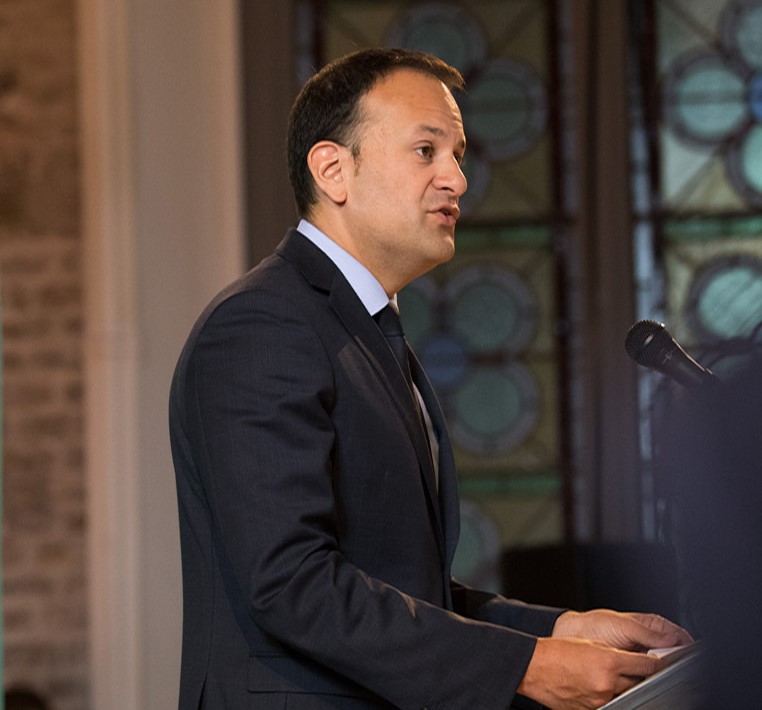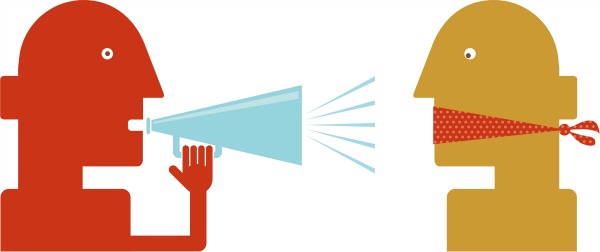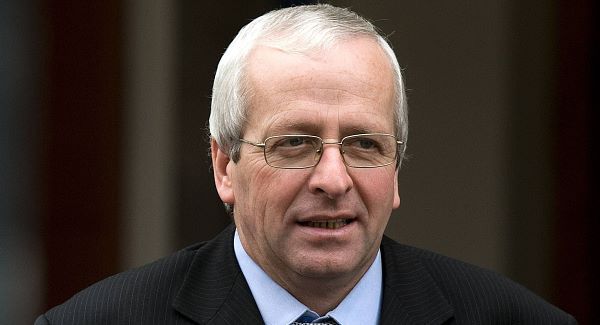
Taoiseach Leo Varadkar has defended comments he made in 2010 when he compared women travelling to the UK for abortions to those who travel to other jurisdictions for other services which are illegal in Ireland. In a 2010 interview in the Sunday Independent’s LIFE magazine, Mr Varadkar was asked if he believed it was a double standard to force thousands of woman to travel to the UK and elsewhere for abortions. The Taoiseach replied: “I don’t think that’s double standards. People travel overseas to do things overseas that aren’t legal in Ireland all the time. You know, are we going to stop people going to Las Vegas? Are we going to stop people going to Amsterdam? There are things that are illegal in Ireland and we don’t prevent people from travelling overseas to avail of them,” he added. Prostitution and cannabis use is legal in both the State of Nevada and the Netherlands.
This weekend, Mr Varadkar defended his comments. “The point I was making was that different countries have different laws,” he said. “Just because something is legal in one country does not mean it should be legal in all countries.

A member of the Commission on Assisted Human Reproduction has criticised as “discriminatory” a plan to impose an age limit of 47 on women accessing such treatment, including the use of donor eggs, embryos, and IVF, but no comparable limit on men. Mary Wingfield, a professor in the Merrion Fertility Clinic in the National Maternity Hospital, said “The upper age limit of 47 for women is reasonable because the risks in pregnancy increase with age,” but added: “Having no upper limit for men but one for women is discriminatory and, while it will cause disagreement, we need one [for men] if we are putting one in for women.”
However, David Walsh, a doctor with the Sims IVF clinic, did not accept that an upper age limit for men was necessary. “Older men are less fertile but they can father a child into their sixties or seventies,” he said. “An age limit on men would ignore biology.”
That difference in biology is also recognised in plans to limit sperm donors to men under 40, while egg donors cannot be older than 35.

The move comes after it was announced that the Census would no longer require people to say whether they were male or female, due to sensitivities toward transgender and non-binary individuals.



Independent TD Mattie McGrath and Senator Ronan Mullen are considering resigning from the Oireachtas committee on the Eighth Amendment as the biased nature of the proceedings turn to “farce”. In a joint statement, Mr McGrath and Mr Mullen said they have “serious concerns about the one-sided nature of the process”, which they described as “entirely skewed and unfair.” They said that “Over 20 groups and individuals pushing for abortion have been invited before the Committee while only a handful of pro-life people have been invited.” Worse still was the news that supposedly expert witnesses, the New York-based Center for Reproductive Rights, were not only an abortion-campaigning group, but were also actively fundraising to change Ireland’s abortion laws. An exasperated Mr Mullen described the committee as a “farce” and told the Irish Independent that “it’s hard to argue with those who describe this entire process as a propaganda exercise in favour of abortion.” Furthermore, Mr McGrath spoke of the poisonous atmosphere in the committee room itself. “When we speak, we’re ridiculed, there are sneers and all kinds of undermining, and when we ask honest questions, in a very calm manner, questions that we’ve prepared for our witnesses…there’s all kinds of gasps and wahoos. I’ve been called a liar by a committee member, but I didn’t tell any lies whatsoever.”
In their joint statement to the press, they concluded: “Given the way things have developed, it is our honest view that the credibility of the Committee cannot be restored owing to how entirely slanted the process has become. We are now actively considering whether there’s any point in our remaining on as members. “

The latest details from the April 2016 census show the vast majority of the population continue to identify as belonging to a religion even as the percentage of Catholics has again decreased while the number of people with no religion continues to increase. The figures published by the Central Statistics Office report that the number of Catholics fell to 3,729,100 from 3,861,300, and comprised 78.3% of the population in April 2016, compared to 84.2% in April 2011. The data represents the first fall in the absolute number of Catholics in Ireland in 45 years. Persons born outside of Ireland comprised 12.0 per cent, or almost one in eight of the State’s total Catholic population in 2016. Figures for the Church of Ireland also showed a decrease while those for orthodox Christians, as well as Jewish and Muslim adherents, showed a marked increase.
The number of people identifying themselves as having no religion increased from 269,800 to 468,400, an increase of 73.6%, and comprised 9.8% of the population.
Overall, Census 2016 results show that Ireland’s population stood at 4,761,865 in April 2016, an increase of 173,613 (3.8%) since April 2011.

The favoured option of FG TDs and Ministers for changing the 1983 pro-life amendment came under fire yesterday from an expert witness due to the degree of uncertainty it would introduce into the law. The Oireachtas committee on abortion considered six options for reform of the Constitution’s pro-life clause and heard the opinion of an expert witness, senior barrister, Nuala Butler SC, as to the legal prudence of each one. The three main choices discussed were to either repeal article 40.3.3 entirely, or amend it to specify grounds for abortion, or replace it with a provision that names the Oireachtas as having absolute authority to legislate for abortion immune from any judicial review or restraint by the Courts. The choice of repeal could itself follow any one of three options: simple repeal without any reference to future legislation; repeal and insert replacement legislation into the Constitution; or, repeal with published legislation waiting to be voted on by the Oireachtas. Of these options, Ms. Butler said the first would give certainty to the law. The second would be cumbersome and make it extremely difficult to make even the slightest change to the law. The third would simply be a political act, giving no assurance that a published bill would subsequently become law. The choice of amending the Constitution could itself be done in two ways. One would be to specify exactly a narrow set of grounds for abortion. The other would be to give more general criteria for abortion in a broad sweep of circumstances. The former is thought to be the favoured option of FG Ministers and TDs, but Ms Butler said this option would be “likely to prove very difficult”, as grounds such as rape or fatal foetal abnormality would present “practical problems arising as to how they should be established and to whose satisfaction”. The latter option, of offering general criteria, would itself carry its own set of difficulties and uncertainties, she said.
The final option, of placing constitutional authority for abortion law entirely in the hands of the Oireachtas and out of reach of the courts, would grant certainty and “give the greatest flexibility in terms of the future content of the law since it would be entirely a matter for the Oireachtas” to determine the legislation.

A taxpayer-funded transgender charity has been banned by the High Court in the UK from any contact with a family after the mother, who was being advised by the group, forced her seven-year-old son to live as a girl.
In a court case, reported last year, Mr Justice Hayden removed the seven-year-old child, known as “J”, from his mother after finding she had caused him “significant emotional harm” and “pressed [him] into a gender identification that had far more to do with his mother’s needs and little, if anything, to do with his own”.
Social services had declined to act against the woman, saying she had “appropriately taken on board support from . . . Mermaids”, a UK transgender charity that receives funding from the Department for Education, the national lottery and the BBC’s Children in Need appeal. However, the Judge accused social workers of “summarily disregarding” many concerns expressed by police and healthcare professionals about the child because they “did not wish to appear to be challenging an emerging orthodoxy in such a high-profile issue”.
The Judge found that the child had been home-schooled and was dressed in girls’ clothes. After being removed from his mother, however, and sent to live with his father and go to school, he had “assert[ed] his own masculine gender” and lived life as a boy.
At the time, Mermaids attacked the “horrific decision”, insisted J wanted to be a girl and said there was “no evidence at all to support this judge’s views”.
Stephanie Davies-Arai, founder of Transgender Trend, a website for parents questioning the diagnosis and treatment of children as transgender, said: “I am concerned that Mermaids is indoctrinating children, scaring parents into thinking that [gender] transition is the only way and intimidating professionals.”
Separately, the Sunday Times also revealed that until last week the same charity, Mermaids UK, was advertising “same day” cross-sex hormone treatment for children, even though National Health guidelines do not allow the treatment, which causes irreversible bodily changes and can compromise fertility, for anyone under 16. When questioned about the advertisement by the Sunday Times, they removed the posting from their facebook page.

An Oxford College banned a Christian student club from participating in its freshers’ fair last week on the grounds that it would be “alienating” for students of other religions, and constitute a “micro-aggression”. The organiser of Balliol’s fair argued Christianity’s historic use as “an excuse for homophobia and certain forms of neo-colonialism” meant that students might feel “unwelcome” in their new college if the Christian Union, a long established student body, had a stall.
Initially the student committee organising the fair wanted it to be a “secular space” on that grounds that, as they couldn’t guarantee all faiths would be present, it would be better to have none. Later they relented and allowed a “multi-faith” stall at the fair, with information about various university religious societies, but barred student representatives of the CU from attending in person and distributing leaflets.
Criticism of the decision rained down on the organisers. Dr Joanna Williams, a university lecturer and author of Academic Freedom in an Age of Conformity, said the decision to ban the Christian Union was “completely bizarre”. “It is intolerance being exercised in the name of inclusion,” she said. “I would argue that a university would be an ideal place for students to explore their religious beliefs. The idea that some religions are not allowed to be represented really prevents students being able to do that. It seems completely bizarre, I am lost for words.”In response to the backlash, the student committee in charge partially reversed itself and decided that the Christian club will be allowed participate at future fairs.